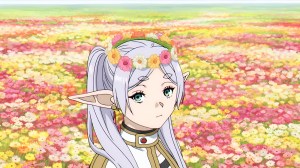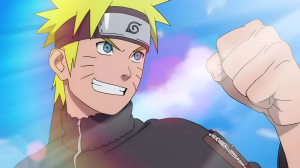Voltron: Legendary Defender is one of Netflix’s top original titles, but that doesn’t mean the show is immune to critique. With its new season streaming now, audiences have shared their mixed reactions to its heavy story, and one showrunner is taking a moment to address a rather sharp criticism of the show.
Videos by ComicBook.com
Taking to Twitter. Joaquim Dos Santos broke his silence on social media following the debut of Voltron‘s new season. The co-executive producer posted an open letter to the Voltron fandom addressing the various complaints fans have had about the season, and he stressed the show in no way intended to queer bait anyone with Shiro’s LGBTQ reveal.
“With regards to season 7 itself, if anyone for any reason took away from this season that our intention was to queer bait the VLD fandom I’d like to personally apologize. I can only speak to our intent and I can truly say we did not intend to bait anyone. I know that is not any consolation but it is the truth,” the producer wrote.
An open letter to the VLD fandom RE: Season 7. pic.twitter.com/S4Ram1Mxm1
— Joaquim Dos Santos (@JDS_247) August 14, 2018
For those out of the loop, the controversy regarding Shiro stems from a couple points. For one, the lead character’s LGBTQ sexuality was confirmed at a San Diego Comic Con panel this summer, but Voltron didn’t make any explicit mention of it in season seven. That compounded on top of a controversial death as Adam, Shiro’s former lover, ended up dying after his very brief introduction. Fans were quick to call out Voltron for the move with some going as far as to say Voltron bought into the controversial ‘bury your gays’ trope — but Dos Santos says that wasn’t meant to be the case.
“From a purely story perspective, having Adam be a part of the garrison, and take part in Earths initial (ultimately futile) wave against the galra allowed us to set up the stakes in as simple a way as possible. From our POV, despite having Shiro and Adam split we knew seeing a familiar face bravely make the sacrifice along with the squadron he led (and countless others) would help get across the gravity of this invasion,” the producer said.
“We were aware of the “bury your gays” trope but hoped against hope that our struggle to confirm Shiro’s orientation would take center stage here. We had not intended for Adam to be interpreted as a recurring character or someone that would come back into Shiro’s life.”
Continuing, Dos Santos goes on to address the romantic issues fans had with season seven. Given the show’s big fandom, the presence of shipping is hard to miss when it comes to Voltron, and some felt season seven unfairly set expectations for certain relationships and failed to deliver. The producer also shared his concern over the volatile reaction some fans had over their complaints as death threats were sent to both cast and crew members on the show.
You can check out Dos Santos’ full note here as it wraps with the producer acknowledging the hurt season seven brought upon some fans.
“There is no way for me to take way the hurt some of you have felt with the loss of Adam and from a bigger perspective how we fumbled a potentially larger positive social message. What I can say is that we’re riding an ever moving, fine line here and trying to navigate as best we can while still moving the conversation forward,” Dos Santos stressed.
“We are incredibly proud of the strides we were able to make thus far. The fact that there is a vocal audience demanding for the conversation to be pushed farther and faster is ultimately an incredibly positive thing and a lesson we’ll take moving forward.”
Do you see where the backlash against Voltron is coming from? Let me know in the comments or hit me up on Twitter @MeganPetersCB to talk all things comics and anime!
Voltron: Legendary Defender was created in 2016 by Netflix and DreamWorks Animation. The series is the fourth major TV project to bear the Voltron name with co-showrunners Joaquim Dos Santos and Lauren Montgomery overseeing the series. The show is based loosely on the original Japanese series Beast King GoLion and has since spawned multiple seasons as one of Netflix’s top original programs.








